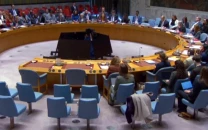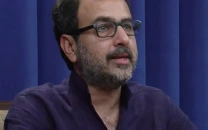Talking business

Take March 2008 as an example when Pakistan grappled with the question “to restore or not to restore,” and the deadline in the Muree declaration hung like an executioner’s axe over the fledgling new coalition Mr Asif Ali Zardari had assembled. In this crucial month, my attention was caught by the collapse of Bear Stearns.
“No impact on Pakistan,” went a common refrain back then. “Our banks have no exposure to subprime assets.” But this reading of the Bear Stearns sale to J P Morgan for only two dollars a share missed the most important lesson of the event: this was no longer just a subprime crisis, but had grown into a full blown economic crisis with the power to bring down the most venerable financial houses in the world. The ramifications of this crisis were global, and they were undoubtedly coming our way.
And they did. The media and the public were fixated on the unfolding political drama as the coalition ruptured and Musharraf was ambushed with an impeachment. Yet underneath the headlines, I could see the ground upon which the government stood was melting. The price of oil touched $147 a barrel in those days and credit markets froze following Bear’s collapse. Our oil import bill depleted our foreign exchange reserves which, by the time of Zardari’s ascension to the Presidency, could support only a few weeks worth of imports.
When the rupee plunged by 20 per cent and inflation soared to a historic 25 per cent, oil prices went from Rs50 to Rs86 at the pump, and the stock market tanked, taking the life savings of close to one million people with it, and real estate crashed, the “mere details” had come home to roost.
The bursting of the Musharraf era bubble was easily one of the biggest stories of 2008. It can comfortably be placed alongside the two other big stories from that year: the transition to civilian rule, and the revival of the militancy. Yet few now remember the banking crisis we stood on the brink of in the fall of 2008. Even fewer recall Pakistan’s approach to the IMF. Some might remember how an elected politician – Naveed Qamar – proved unequal to the task of economic management in the midst of a crisis, and had to be moved aside to make room for a technocrat.
Today I’m watching what happens with the passage of the VAT legislation and how the circular debt is addressed. And here’s why.
If we don’t find a way to raise the resources we need ourselves, we will be forced to borrow from others. And when others agree to pay your expenses, they attach conditions. Your creditors always want to know how you intend to utilise their funds, how and when you intend to return them. If you’re not standing on your own feet, you must dance to somebody else’s tune. Want your country to be sovereign? Then pay your taxes. It’s that simple.
And nothing is going anywhere in this country until we get the power situation figured out. So figure this: the circular debt is in fact neither circular nor a debt. It’s a straightforward lie that we have been telling ourselves for over a decade now, that electricity is cheap and abundant. Whereas, in fact, it is scarce and expensive, especially the way we do it, and we perpetuate this lie by continuing to subsidise electricity and politicising its allocation. So if we’re going to crawl out from under this crippling power shortage, the first thing we have to do is to stop telling ourselves this lie and learn to face the reality. Only then will the right quarters be moved to take the right action.


















COMMENTS
Comments are moderated and generally will be posted if they are on-topic and not abusive.
For more information, please see our Comments FAQ